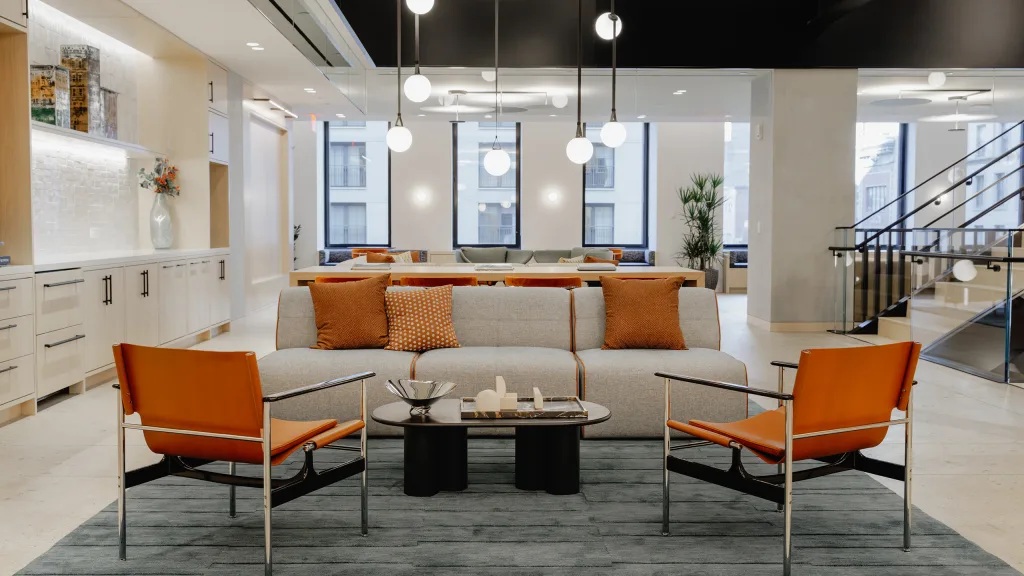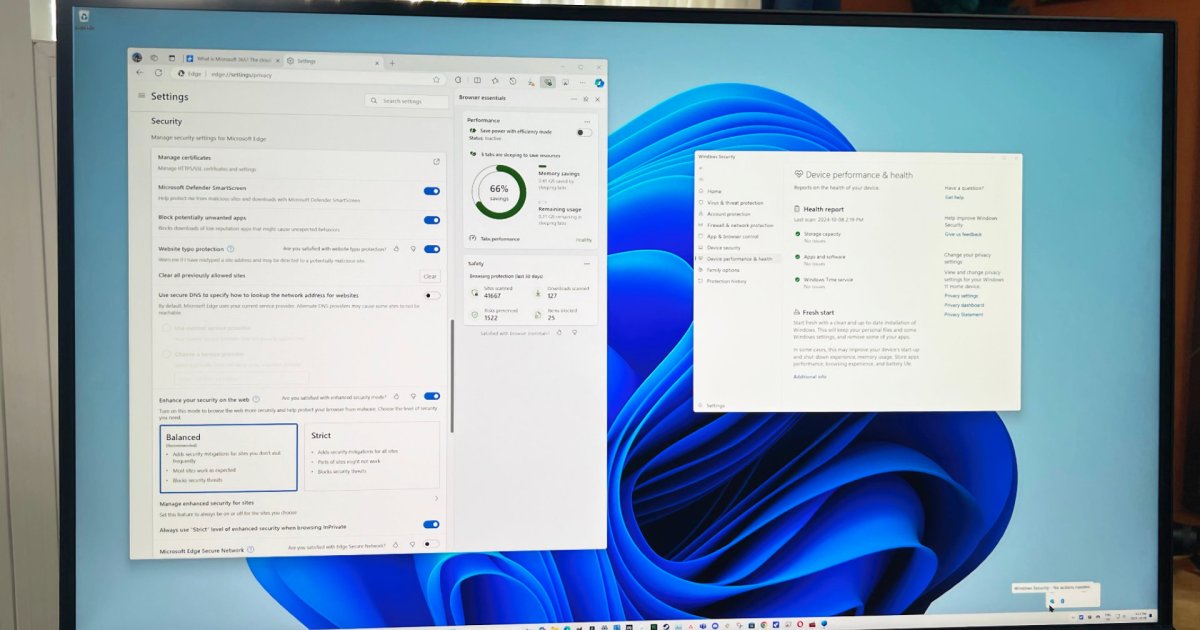At the offices of the world’s “most feared” law firm for three years running, according to the legal market research firm BTI Consulting, you might expect to see unsmiling attorneys with overly slicked coifs and severe attire beelining through the halls and behind heavy wood doors. But the new Manhattan headquarters of Quinn Emanuel Urquhart & Sullivan—the litigation-focused law firm known as much for its lawyers’ demanding workloads as its cutthroat approach in court and high-profile clients like Elon Musk and Alec Baldwin—looks more like a WeWork: partially frosted glass walls, high-tech conference rooms, open-plan meeting spaces, a big central staircase, and lobby plants so abundant that they require their own irrigation system.
The relaxed vibe is intentional. The firm’s goal with this new space is to make working on-site as appealing as possible—an especially tall order because of the firm’s well-known “work-from-anywhere” (WFA) policy. Developed in 2021 to accommodate COVID-related protocols, the policy remains in place, in part because of the firm’s ethos. “Nothing’s mandated,” says Jennifer Barrett, co-managing partner of the New York office. “That’s not the Quinn way.”
Quinn Emanuel has long stood out for its progressive policies in a law-firm landscape of imposing mahogany desks and jeans-precluding dress codes. Founded by John Quinn in Los Angeles in 1986, the firm has preserved a reputation for its laid-back California vibe. Legal journalist David Lat says that Quinn Emanuel, “one of the largest and most successful litigation firms in the world,” stands apart “for being less stuffy than its peers and doing things a little differently.” Though the vibe can feel superficial, I realized, after the fourth person I spoke with for this story mentioned regular flip-flop sightings around the office.
Quinn Emanuel’s WFA policy is especially appealing to young attorneys, 44% of whom said in a recent American Bar Association survey that in-office flexibility is important enough to leave their current firm “for a greater ability to work remotely elsewhere.” And law firms have listened: Almost all firms now have hybrid work policies, according to a 2024 survey by the commercial real estate and investment firm CBRE.







